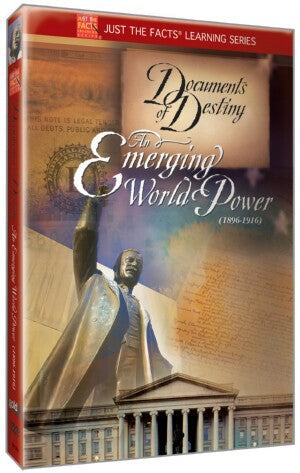Just the Facts: America's Documents of Freedom 1896-1916
American democracy has a lineage of written records that we can trace to show the development of our nation, and how each document builds on those before it to make our foundation of freedom stronger. This video focuses on documents conceived in a period when America was struggling with civil rights issues at home and exhibiting its power in foreign policy.Plessy v. Ferguson (1896) åÊ--åÊ Segregation and discrimination persisted even after the Civil Rights Acts of 1866 and 1875 and passage of the 14th Amendment. This Supreme Court ruling upheld a lower court‰۪s ruling stating that "separate but equal" facilities for African-Americans did not violate the 14th Amendment.åÊåÊ åÊHay-Bunau-Varilla Treaty (1903) --åÊ This treaty paved the way for construction of the Panama Canal. President Theodore Roosevelt personally met with the Panamanian envoy Bunau-Varilla and worked out details for the United States to build the Panama Canal.åÊåÊ åÊThe Roosevelt Corollary (1904) --åÊ President Theodore Roosevelt modified America‰۪s foreign policy, as stated in the Monroe Doctrine, with this document. It changed the way the U.S. regards territorial aggression in the Western Hemisphere.åÊ It gave rise to the saying, "Speak softly and carry a big stick." åÊFederal Reserve Act (1913) --åÊ Woodrow Wilson helped draft this act, which created a three-tier banking system in the United States: the Federal Reserve Board at the top, 12 Federal Reserve Banks on the second level, and private banks on the third level.åÊ åÊFederal Trade Commission (1914) --åÊ The Federal Trade Commission was established to enforce a variety of federal antitrust and consumer protection laws. The commission oversees fair competition that is free from deceptive or unfair practices.Keating-Owens Child Labor Act (1916) --åÊ This act attempted to make child labor illegal. Congress passed the act, but the U.S. Supreme Court ruled it unconstitutional because it put restrictions on commerce rather than outlawing child labor.






